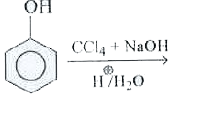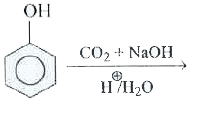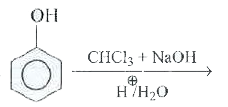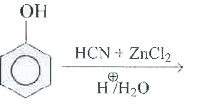Which of the following samples of water would not produce lather with soap?
Water containing dissolved NaCl
Water containing dissolved MgSO4
Water containing dissolved Ca(HCO3)2
Water containing dissolved K2SO4.
To determine which samples of water would not produce lather with soap, we need to understand the concept of hard water and its effect on soap. Hard water contains dissolved salts, particularly those of calcium and magnesium, which interfere with the formation of lather when soap is used.
1. Understand Hard Water:
- Hard water is defined as water that contains high concentrations of dissolved minerals, specifically calcium (Ca²⁺) and magnesium (Mg²⁺) ions. These ions react with soap to form insoluble compounds, preventing the formation of lather.
2. Identify the Types of Hardness:
- Temporary Hardness: Caused by bicarbonates of calcium and magnesium, which can be removed by boiling.
- Permanent Hardness: Caused by sulfates and chlorides of calcium and magnesium, which cannot be removed by boiling.
3. Analyze the Options:
- Option 1: Water containing dissolved NaCl (sodium chloride).
- Sodium does not contribute to hardness, so this water will produce lather with soap.
- Option 2: Water containing dissolved MgSO4 (magnesium sulfate).
- Magnesium sulfate contributes to permanent hardness, so this water will not produce lather with soap.
- Option 3: Water containing dissolved Ca(HCO3)2 (calcium bicarbonate).
- Calcium bicarbonate contributes to temporary hardness, so this water will not produce lather with soap.
- Option 4: Water containing dissolved K2SO4 (potassium sulfate).
- Potassium does not contribute to hardness, so this water will produce lather with soap.
4. Conclusion:
- The samples of water that would not produce lather with soap are those containing magnesium sulfate (MgSO4) and calcium bicarbonate (Ca(HCO3)2).
Final Answer:
The samples of water that would not produce lather with soap are:
- Water containing dissolved MgSO4 (magnesium sulfate)
- Water containing dissolved Ca(HCO3)2 (calcium bicarbonate)
- Hard water is defined as water that contains high concentrations of dissolved minerals, specifically calcium (Ca²⁺) and magnesium (Mg²⁺) ions. These ions react with soap to form insoluble compounds, preventing the formation of lather.
- Temporary Hardness: Caused by bicarbonates of calcium and magnesium, which can be removed by boiling.
- Permanent Hardness: Caused by sulfates and chlorides of calcium and magnesium, which cannot be removed by boiling.
- Option 1: Water containing dissolved NaCl (sodium chloride).
- Sodium does not contribute to hardness, so this water will produce lather with soap.
- Option 2: Water containing dissolved MgSO4 (magnesium sulfate).
- Magnesium sulfate contributes to permanent hardness, so this water will not produce lather with soap.
- Option 3: Water containing dissolved Ca(HCO3)2 (calcium bicarbonate).
- Calcium bicarbonate contributes to temporary hardness, so this water will not produce lather with soap.
- Option 4: Water containing dissolved K2SO4 (potassium sulfate).
- Potassium does not contribute to hardness, so this water will produce lather with soap.
- The samples of water that would not produce lather with soap are those containing magnesium sulfate (MgSO4) and calcium bicarbonate (Ca(HCO3)2).
The samples of water that would not produce lather with soap are:
- Water containing dissolved MgSO4 (magnesium sulfate)
- Water containing dissolved Ca(HCO3)2 (calcium bicarbonate)
Topper's Solved these Questions
- HYDROGENBook:ICSEChapter:HYDROGENExercise:VERY SHORT ANSWER TYPE QUESTIONS
Explore 45 Videos
- HYDROGENBook:ICSEChapter:HYDROGENExercise:SHORT ANSWER TYPE QUESTIONS
Explore 115 Videos
- HYDROGENBook:ICSEChapter:HYDROGENExercise:NCERT TEXT-BOOK EXERCISE (With Hints and Solutions)
Explore 53 Videos
- HYDROCARBONS Book:ICSEChapter:HYDROCARBONS Exercise:NCERT TEXT-BOOK EXERCISES
Explore 46 Videos
- ORGANIC CHEMISTRY : SOME BASIC PRINCIPLES AND TECHNIQUES Book:ICSEChapter:ORGANIC CHEMISTRY : SOME BASIC PRINCIPLES AND TECHNIQUES Exercise:NCERT TEXT-BOOK EXERCISES (WITH HINTS AND SOLUTIONS )
Explore 72 Videos
Similar Questions
Knowledge Check
Which of the following compounds is soap?
ACH3CH2CH2COONaBCH3(CH2)14ONaCCH3(CH2)14COONaD[CH3(CH2)14COO]2CaWhich of the following reactions would produce same product?
A B
B C
C D
D
Which of the following monomers would produce the condensation polymer below ?
 A
A B
B C
C D
D
Which of the following insectivorous plant produces bladder in water?
View SolutionWhich of the following method would not produce clones?
(a) Double fertilization
(b) Apomixis
(c) Vegetative reproduction
(d) Tissue culture
View SolutionWhich of the following would be produced when acetylene reacts with HCl ?
View SolutionWhich of the following would be produced when acetylene reacts with excess Cl2?
View SolutionWhich of the following does not produce any gaseous product when reacts with water?
View Solution